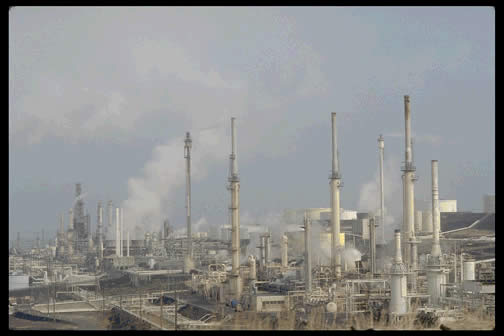What are Social Determinants of Health (SDoH), and why should small and mid-sized business owners be concerned about them? SDoH refer to non-medical factors that impact overall health. The leading SDoHs, according to a landmark World Health Organization (WHO) report, are noise pollution, poor air quality, and poor water quality.
Climate Change and Social Determinants of Health DO, in fact, impact business owners! Rising global temperatures have many detrimental effects on employees’ health, and so does indoor air quality. Governmental agencies like the EPA and others, are driving changes that WILL affect business owners and their bottom lines. Like it or not, these changes ARE coming, so isn’t it better to be proactive and ahead of the curve, then be reactionary and have to scramble to comply with new regulations later on?
Climate Change Affects Businesses!
While debate continues to surround the specifics of Climate Change, there is medical and scientific consensus that these changes not only are occurring but in fact are progressing. For instance, wind speeds are increasing, and global temperatures are rising.
Much more than fodder for scientific journals, Climate Change is having a major impact on businesses. First, rising global temperatures have a detrimental effect on employees’ health. Second, increasing temperature extremes and higher levels of allergens mean that workers will spend more and more time indoors.
Detrimental Effect on Employee Health
Rising global temperatures have many detrimental effects on employees’ health. Increasing temps have been demonstrated to increase levels of stress, as well as rates of aggression, bullying, verbal abuse, and even workplace violence. Studies in several urban areas found that for every 2-degree rise in average yearly temperature, the rates of homicides, assaults, and suicides rose by 3%. Interestingly, these increases were mitigated by indoor environmental temperature and humidity control.
Need Increasing, but also Cost
In other words, while rising temperatures pose numerous health concerns, business owners can lessen their effects through greater control of indoor temperatures and humidity in the workplace. That’s the good news. That bad part is the cost of cooling indoor spaces also will rise.
This is where a SMART ventilation controller comes in by not only minimizing, but actually decreasing these costs. A SMART controller saves energy (and in turn money) by “banking” air, as but one example. For instance, let’s say the set point of the HVAC system is 78, but the outside temperature is 75 or even 70, which allows the indoor temp to drop to 76. This means cooler rooms will be at 73 degrees and even warmer rooms will be 78.
Since the HVAC does not come on until 79 degrees, the fan will circulate the “banked” cool air and thus skip compressor cycles. The point is this: Fewer compressor cycles (by banking cool air) is more energy efficient, which saves up to 30% on heating and cooling costs.
Additional Time Indoors Means IAQ Becoming More and More Important
As noted, with increasing temperature extremes and higher levels of allergens, people will spend more and more time indoors. This isn’t a good thing because living or working in confined quarters increases exposure to illness and contributes to poor Indoor Air Quality (IAQ). And remember that poor IAQ is one of the leading SDoHs that was mentioned at the beginning of this article!
Reducing the risks of poor IAQ is crucial because contaminants such as radon, volatile organic compounds (VOCs), and other pollutants can build up indoors, leading to potentially serious health problems such as asthma. In addition, substances such as asbestos and radon do not cause immediate symptoms but can lead to cancer after many years of exposure.
And those aren’t the only ill effects of miserable IAQ. Poor air quality also increases blood pressure, risk of fatal heart attack, and stroke by increasing the body’s stress response (also known as “fight or flight” response).
Again, this where a SMART ventilation controller comes in. By using a SMART controller to optimize air quality, business owners can reduce the stress level of employees by up to 14%. (And reducing stress, in turn, lessens the likelihood of serious health problems). IAQ is a year-round need, and it is especially important during the extreme temperature months of the summer and winter, when many of us spend more time indoors.
Summary
In terms of overall health, healthcare leaders are increasingly recognizing that in order to deliver better health outcomes, social determinants must be addressed. Since healthcare outcomes and SDoH factors like air quality are interrelated in the workplace, these factors either already are, or will soon impact businesses’ bottom lines.
Since it’s not a matter of “if” this will happen but “when”, the question becomes: What are business owners going to do about this dilemma? Protecting employees’ health by optimizing IAQ – and in turn saving 30% on HVAC energy costs – means that installing a SMART ventilation controller is indeed a “smart” decision.










